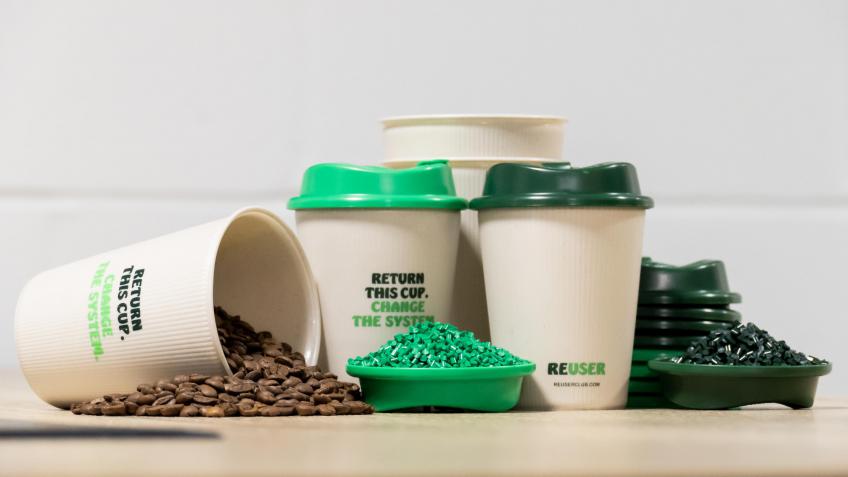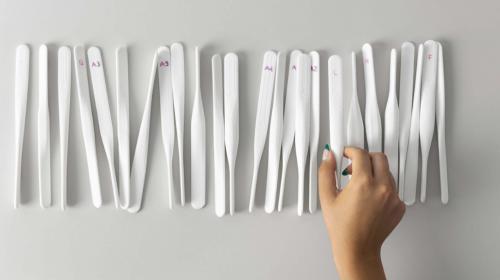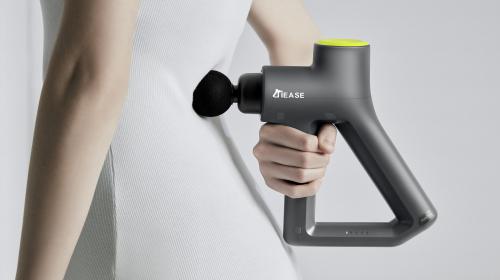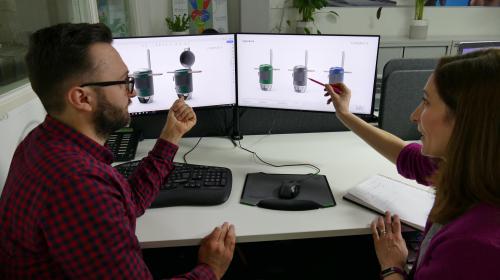What Does Industrial Design Involve, and Why Is It Important in Manufacturing?
Industrial design is a vital stage at the heart of modern product development. It’s where function meets form: technical feasibility, user experience, and brand expression come together to shape products that not only operate smoothly, but resonate with users and succeed in competitive markets.
At Industrial Design Consultancy (IDC), industrial design is approached as a strategic driver of innovation. Through early concept development, user-focused design, and deep engineering integration, we’ve helped clients for over 50 years create products that are visually distinctive and ready for real-world manufacturing.
Defining Industrial Design
Industrial design is the key process of designing and developing the physical and functional aspects of products. It ensures that products are not just engineered to work, but also to be understood, desired, and trusted by users.
IDC’s approach covers key aspects of the industrial design discipline:
Concept Generation: Quickly developing and visualising design ideas using sketches, block CAD models, physical mockups, and 3D prints to explore different directions. This allows our teams to assess feasibility and refine ideas early in the process.
User Experience: Making sure the product is intuitive and safe to use. Our Design Team prioritises ergonomics, accessibility, and the cognitive experience throughout the product's lifecycle.
Visual Brand Language (VBL): Translating a brand’s values into visual and physical form - using shape, material, colour, and finish to create products that consistently represent the brand across a portfolio.
CMF (Colour, Material, and Finish): Developing strategies that balance aesthetics with technical and regulatory demands, particularly for sectors like medical and industrial equipment. CMF choices are made with long-term usability and manufacturability in mind.
The result is a seamless connection between a product’s external form and its internal function, designed to be built, used, and remembered even in the most competitive markets.

Industrial Design’s Role in Manufacturing
One of the most important aspects of industrial design is how deeply it influences manufacturing success.
At IDC, our Design Team take into consideration every stage of engineering and production from the beginning, leading to more efficient and cost-effective manufacturing outcomes. Industrial design contributes by:
Reducing Complexity: Through design for assembly (DFA) principles, IDC simplifies product architecture, reducing part counts and improving ease of assembly.
Designed for lifecycle: Products are designed with longevity, reparability, and end-of-life considerations, particularly in the context of sustainability and regulatory compliance.
Selecting the Right Materials: Designers propose materials that are not only aligned with aesthetic goals but also durable and suited for mass production.
Supporting Scalable Manufacturing: Concepts are developed with production tooling, tolerances, and quality control in mind, helping bridge the gap from prototype to final product.
The alignment of design with engineering ensures that there are fewer costly changes later, and the final product is truly ready for production.
Our project crafting the Protean Injection Pen illustrates how industrial design can transform highly technical devices into safe and user-friendly products. Designed for use by patients with chronic conditions, the pen needed to be: Ergonomic and Comfortable: Supporting different hand sizes and dexterity levels, particularly important for long-term or elderly users. Intuitive and Reassuring: Visual simplicity and tactile cues were critical to give users confidence during self-administration. Seamlessly Engineered: The Design Team worked closely with the engineering group to house complex mechanisms within a refined, minimal form. IDC's work helped Protean develop a high-quality medical device that combines clinical-grade function with user-focused design. Real-World Application – Protean Injection Pen

In our Reuser Circular Coffee Cup project, we tackled the challenge of sustainability in consumer product design. The focus was on creating a reusable packaging product that would encourage environmentally responsible habits, without sacrificing convenience or visual appeal. Key design features included: Modular and Repairable Components: The product was designed to be disassembled, repaired, and reused over time. Material and Finish Choices: CMF strategy reflected the eco-conscious ethos of the product, using materials and finishes that reinforced the brand's sustainable values. Visual Brand Identity: The product carried a clean, contemporary look aligned with a green, forward-thinking market segment. This project was a clear showcase of how industrial design can shape sustainable behaviours through material use and usability.Real-World Application – Reuser (Circular Coffee Cup)

IDC’s product development process is built around four progressive phases: Explore: Insight-driven research focused on users, markets, and technology. This phase ensures that all design work is grounded in evidence and opportunity. Create: Ideation and concept development. Teams produce a broad range of visual and physical ideas, enabling clients to quickly assess possibilities and refine direction. Define: Detailed design and engineering. Concepts are transformed into fully resolved, manufacturable solutions—ready for prototyping, testing, and compliance. Deliver: Preparing for production. IDC provides tooling-ready data, supports regulatory submissions, and helps scale manufacturing in both Europe and Asia.IDC’s Process: Explore, Create, Define, Deliver

Without industrial design, products risk being technically sound but visually unappealing or difficult to use. Conversely, aesthetic-led designs that lack engineering support often encounter manufacturing setbacks, delays, or cost overruns. IDC solves this by combining form, function, and manufacturability into one unified workflow. This ensures: Faster Development Cycles Improved Product Quality Better User Adoption Stronger Brand Recognition Commercial Success Whether developing medical devices, consumer goods, or industrial products, IDC ensures design is always a strategic tool at the heart of every project - not an afterthought. Industrial design plays a crucial role in the success of manufactured products. By balancing creativity with practicality, and aligning design with engineering and brand strategy, IDC helps clients bring innovative and market-ready products to life. Through concept generation, visual brand language, thoughtful CMF, and early production planning, our expert teams demonstrate that great industrial design is about more than aesthetics: it’s about creating products that work beautifully in the hands of real people, on real production lines, and in real markets. If you have an innovation in mind, or a product you want to take to market with elite design, get in touch with us today.Why Industrial Design Matters in Manufacturing
Industrial Design with IDC


